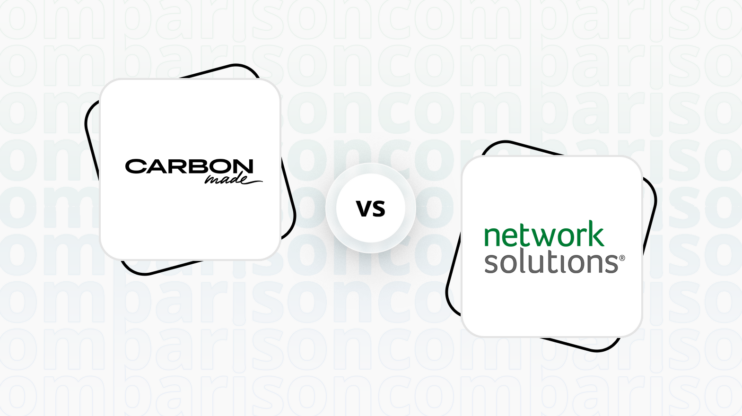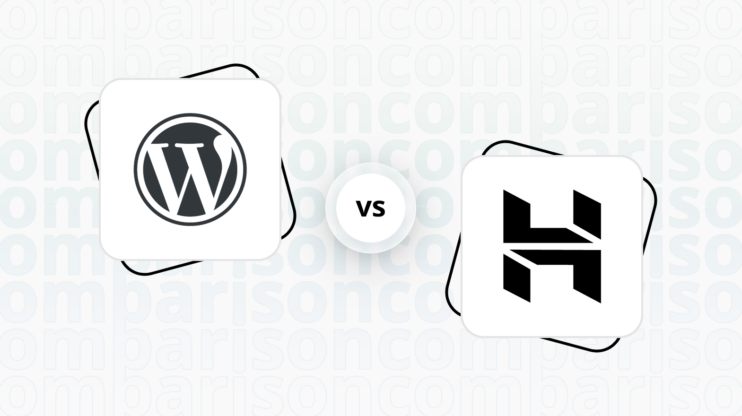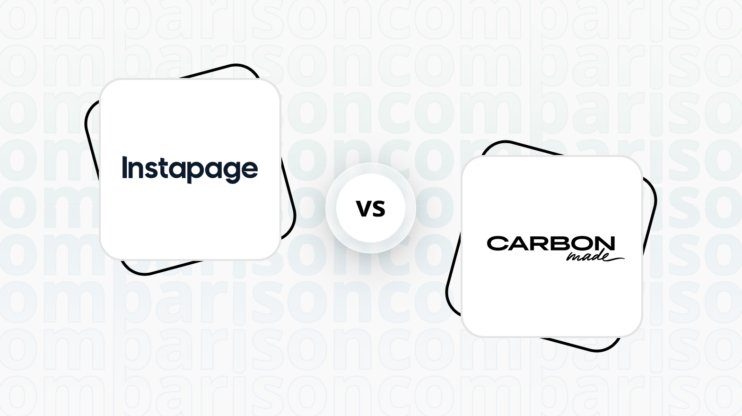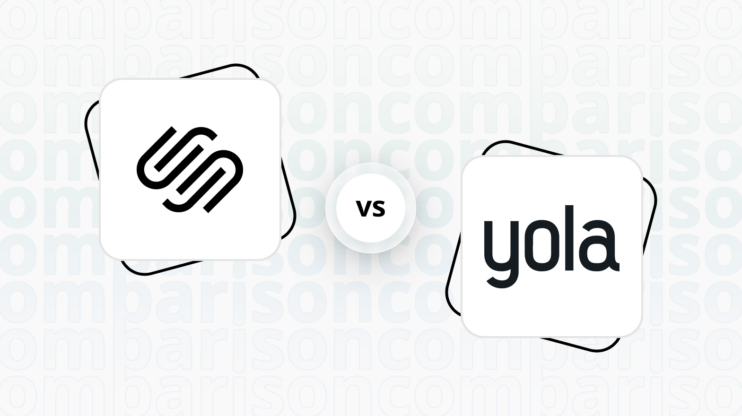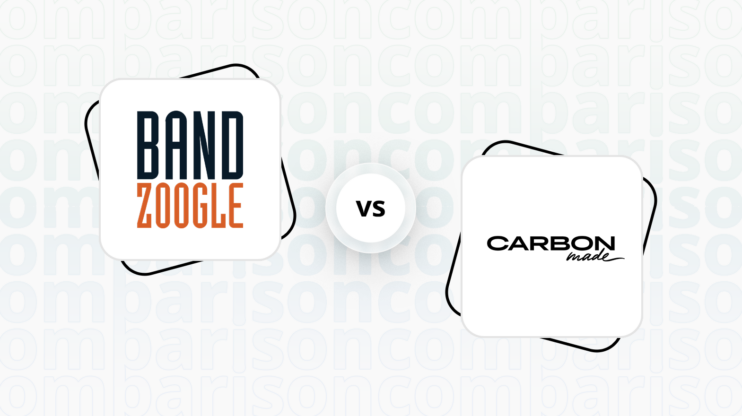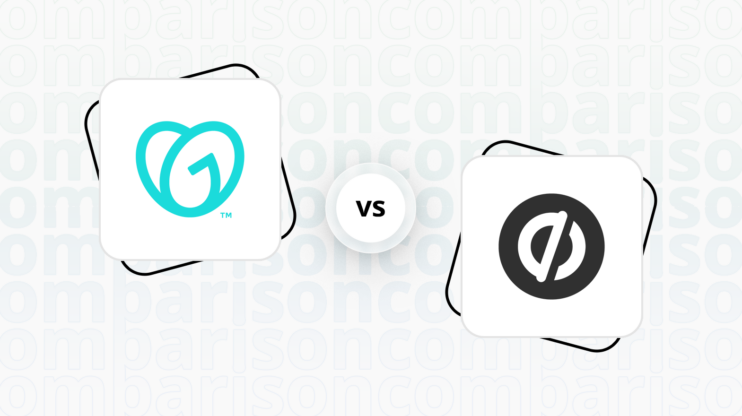Final verdict
Elementor and Showit both offer unique strengths, catering to different user needs and preferences.
-
Elementor (Overall Grade: 7.4/10)
is a versatile website builder plugin for WordPress, known for its extensive design functionalities, ease of use, and robust ecommerce capabilities through WooCommerce integration. It excels in providing a flexible and customizable platform suitable for both beginners and professional web designers. When comparing Elementor vs Showit, Elementor stands out for its comprehensive learning resources, superior customer support, and advanced AI capabilities, making it a strong choice for users seeking a powerful and adaptable website builder. -
Showit (Overall Grade: 6.4/10)
is designed primarily for creative professionals, offering a unique dual canvas interface for independent mobile and desktop design. It provides a high degree of customization and control over the website’s appearance, making it ideal for photographers, designers, and bloggers. In the Elementor vs Showit comparison, Showit shines with its user-friendly interface and strong focus on design flexibility, although it falls short in ecommerce capabilities and lacks advanced AI features. Showit is a great option for users who prioritize creative freedom and visual design.

|

|
|
|---|---|---|
|
Design functionalities & templates |
9.2 |
8.5 |
|
Ease of use |
8.8 |
8.6 |
|
Ecommerce |
7.6 |
4.8 |
|
Website Editors |
8.5 |
8.0 |
|
Product testing options |
5.6 |
8.3 |
|
Price |
8.0 |
7.9 |
|
Hosting quality |
7.8 |
7.3 |
|
Website speed optimization |
6.7 |
5.4 |
|
Plugins and integrations |
7.6 |
5.8 |
|
Marketing features |
7.8 |
7.2 |
|
Customer support |
7.2 |
6.4 |
|
Security |
9.1 |
8.3 |
|
AI capabilities |
7.4 |
0 |
|
User Management |
8.8 |
6.7 |
Best for ecommerce
 7.6
7.6
 4.8
4.8
Verdict
: Elementor is more equipped for ecommerce with its WooCommerce integration and extensive customization options, while Showit is better suited for visually creative websites with basic ecommerce needs.
-
Elementor
: Known for its flexibility and integration with WooCommerce, Elementor offers a robust set of ecommerce features. It provides customizable product pages, ecommerce widgets, and various payment gateways, making it a strong choice for those looking to build a comprehensive online store. However, when comparing Elementor vs Showit, Elementor’s extensive features might be more complex for beginners. -
Showit
: Primarily designed for creative professionals, Showit offers basic ecommerce capabilities through integrations with platforms like Shopify and WooCommerce. It excels in design flexibility but lacks the depth of ecommerce features found in Elementor. This makes Showit ideal for visually oriented websites rather than extensive ecommerce platforms.
Best for informational & business websites
 8.9
8.9
 8.7
8.7
Verdict
: When it comes to creating informational and business websites, Elementor slightly edges out Showit due to its flexibility, extensive design options, and comprehensive support and security features.
-
Elementor
: Elementor is a powerful website builder plugin for WordPress, known for its visual drag-and-drop interface and extensive range of widgets and templates. Scoring 8.9, Elementor offers unparalleled flexibility, allowing users to customize every detail of their webpage. This makes it suitable for both beginners and professional web designers. Its responsive design ensures websites look great on all devices, and it integrates seamlessly with various WordPress themes and plugins, enhancing its functionality and versatility. -
Showit
: Showit, scoring 8.7, is a drag-and-drop website builder designed primarily for creative professionals such as photographers, designers, and bloggers. It offers a unique dual canvas interface for independent design of mobile and desktop views, providing a high degree of customization and control. Showit integrates seamlessly with WordPress for blogging, making it a popular choice for users who want the design flexibility of Showit with the powerful blogging capabilities of WordPress. While it excels in design flexibility, it slightly lags behind Elementor in terms of overall features and support.
Detailed comparison
Design functionalities & templates
Design FunctionalitiesRepresents how well each platform allows for creative design and customization of websites.Score Components:
- Template Variety (30%): Range and quality of design templates.
- Customization (30%): Flexibility and options for design alterations.
- User Interface (20%): Ease and intuitiveness of the design process.
- Responsiveness (10%): Adaptability to different devices and screen sizes.
- Innovation (10%): Unique design features and tools.
 9.2
9.2
 8.5
8.5
🏆
Winner: Elementor.
If you’re looking for a platform that offers more creative control, a wide array of design features, and a larger selection of templates, Elementor is the preferred choice.
Elementor offers an extensive range of templates and designs, with over 100 responsive website kits covering various categories like business, creative, education, and more, directly available through Elementor’s platform. Additional sources like Envato Elements, Template Monster, and others provide a wider selection, including free and premium options, catering to diverse web design needs.
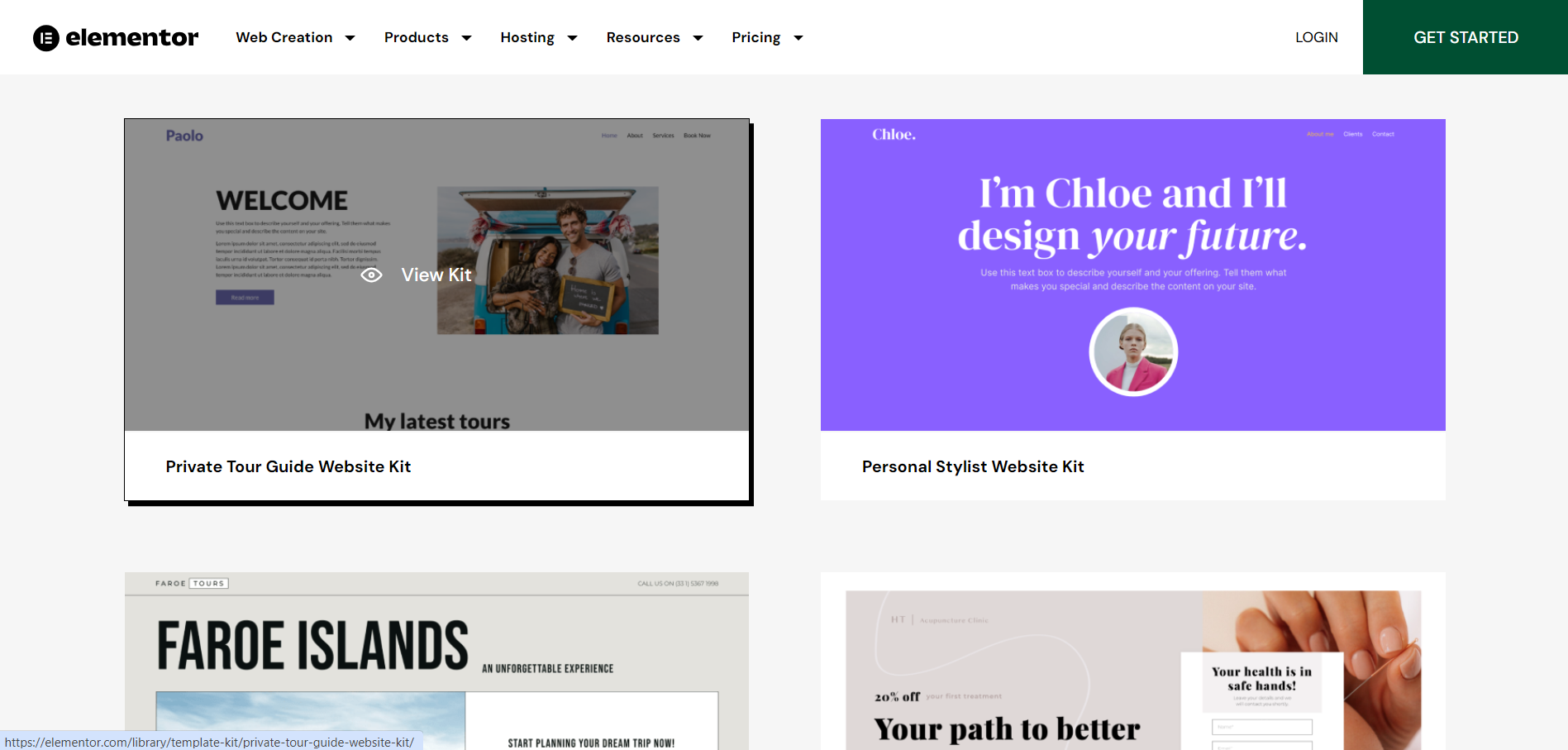
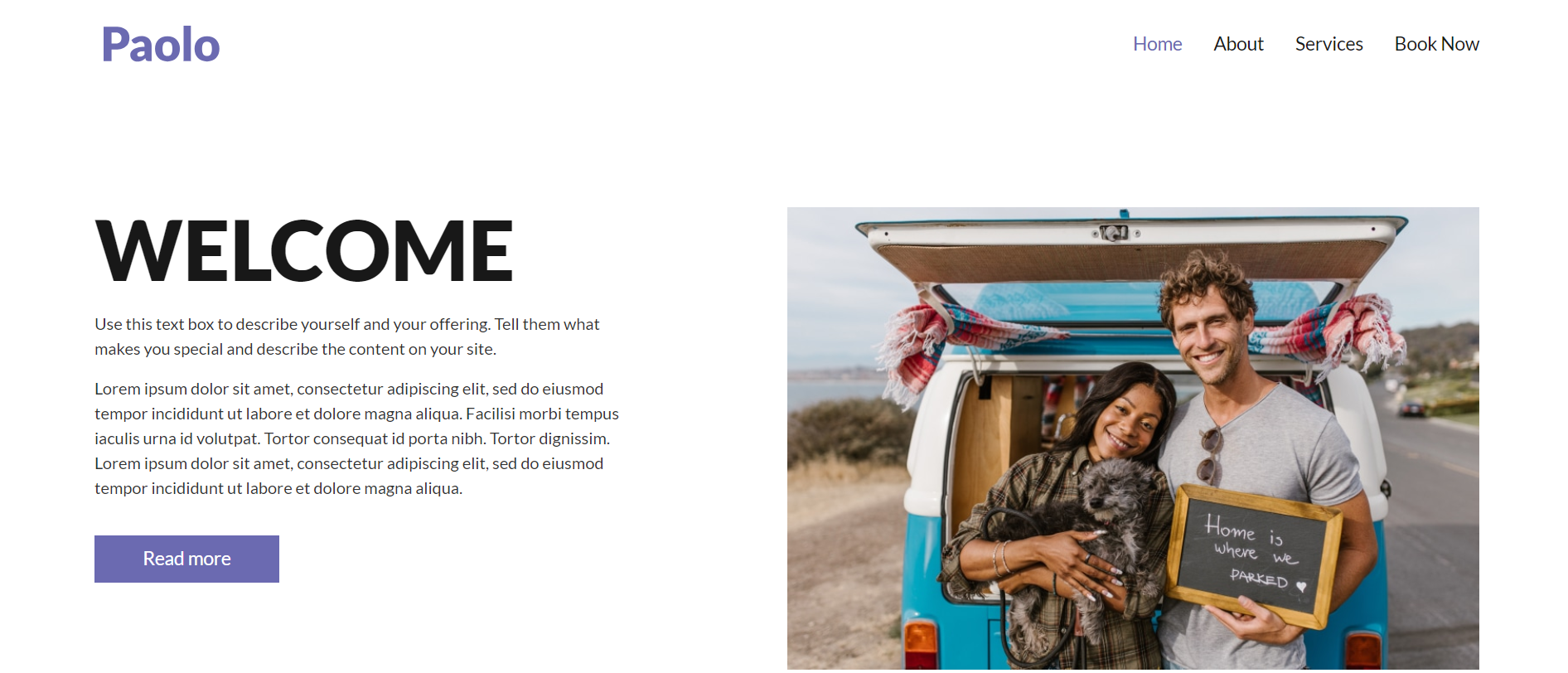
Compared to Elementor, Showit offers a wide variety of templates and designs, catering to diverse aesthetic preferences and business needs. Users can choose from an extensive collection that ranges from minimalist and sleek to bold and artistic, ensuring there’s something for every brand identity. The platform is known for its flexibility and user-friendly interface, allowing for easy customization of templates.
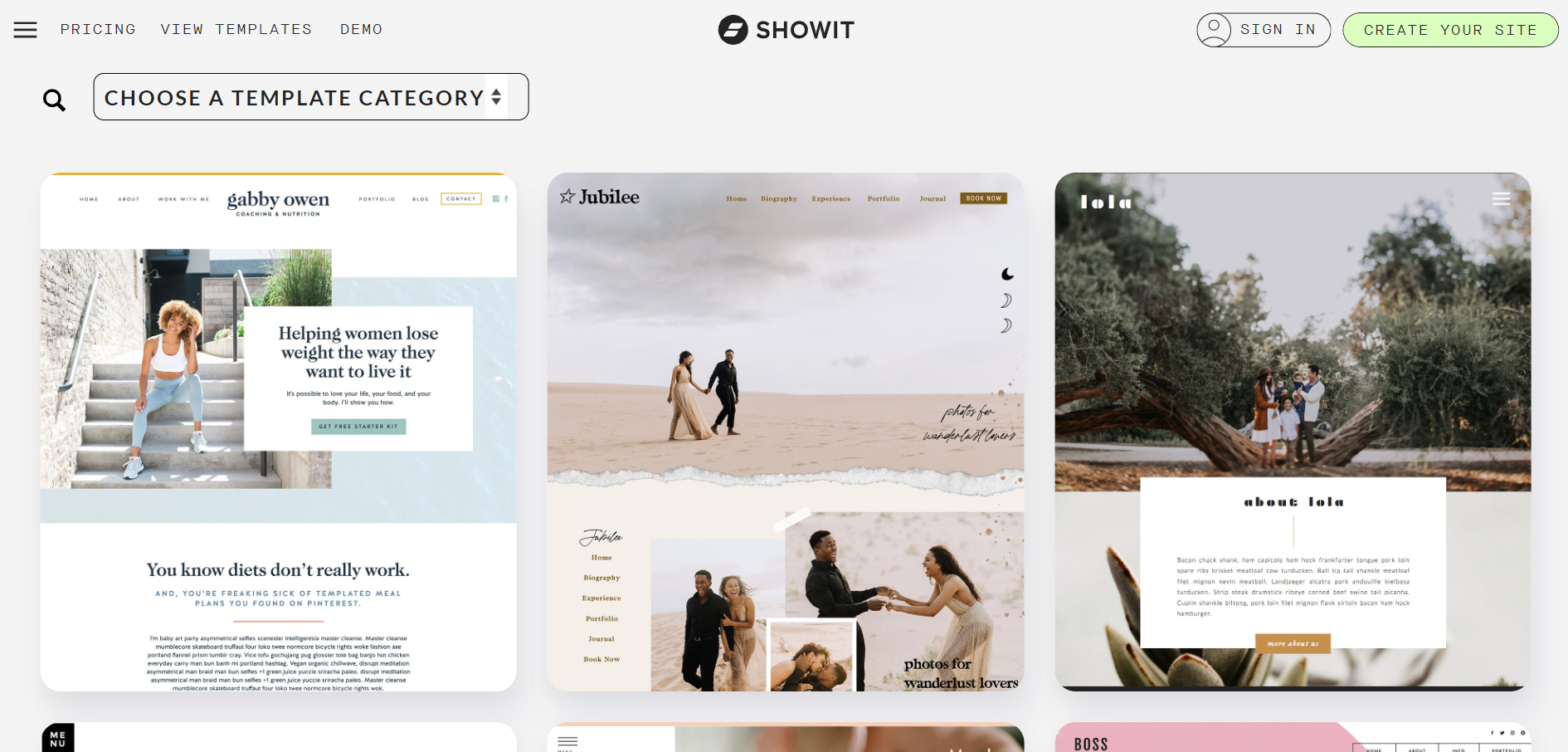

Get a head start on website creation with AI
Create a custom website tailored to your business needs 10X faster with 10Web AI Website Builder!
Ease of use
Ease of useReflects the platform’s overall user-friendliness.Score
Components:
- Learning curve (40%): Quickness and ease of getting started.
- Interface design (30%): Simplicity and intuitiveness of layout.
- User guidance (20%): Quality of tutorials and support.
- Flexibility (10%): Adaptability to various user skills.
 8.8
8.8
 8.6
8.6
🏆 Winner: Elementor
. Scoring 8.8, Elementor edges out Showit, which scored 8.6, in terms of ease of use. Both platforms offer user-friendly, drag-and-drop interfaces, but Elementor’s flexibility and wide range of widgets and templates give it the upper hand.
Learning Resources
🏆 Winner: Elementor
. Both platforms offer extensive learning resources, but Elementor’s Elementor Academy and the wealth of free resources available online make it a more comprehensive learning platform.
For ecommerce
EcommerceMeasures the platform’s effectiveness in supporting online business activities.Score Components:
- Ecommerce themes and templates (20%): Variety and design of templates.
- Product management (25%): Ease of managing and organizing products.
- Payment options (25%): Variety and convenience of payment methods.
- Ecommerce features (20%): Features for managing an ecommerce store.
- Integration (10%): Compatibility with external e-commerce tools and services.
 7.6
7.6
 4.8
4.8
Elementor and Showit offer different ecommerce capabilities, with Elementor providing a more comprehensive set of features through its integration with WooCommerce. Showit, on the other hand, is more focused on design and creative freedom, making it ideal for visually oriented websites rather than extensive ecommerce platforms.

|

|
|
|---|---|---|
|
Ecommerce themes and templates |
7.8 |
2.0 |
|
Product page customization |
8.4 |
2.5 |
|
Payment processing and commissions |
7.5 |
4.0 |
|
POS capabilities |
5.5 |
1.0 |
|
Payment gateways |
7.0 |
4.5 |
|
Product numbers |
7.0 |
3.0 |
|
Additional ecommerce features |
8.0 |
3.5 |
Elementor ecommerce features:
- WooCommerce Integration
- Customizable Product Pages
- Ecommerce Widgets
- Product Categories and Filters
- Shopping Cart Customization
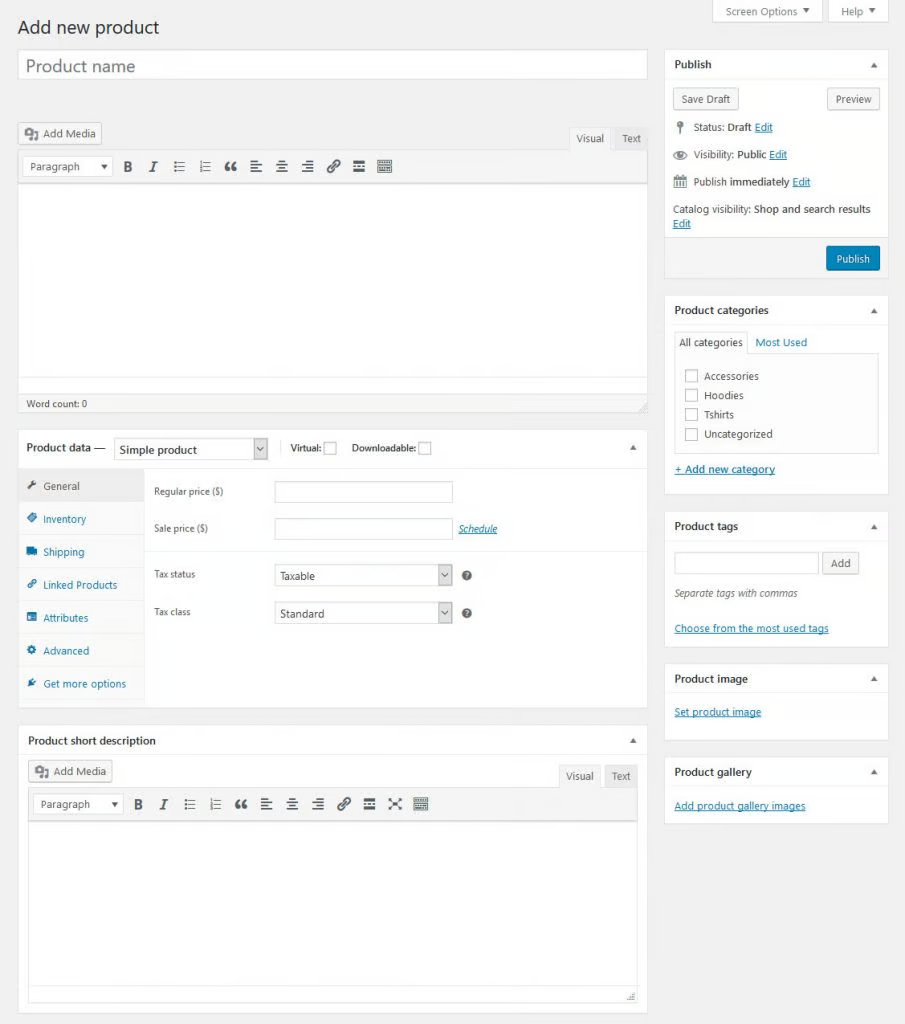
Showit ecommerce features:
- Shopify and WooCommerce integration
Ecommerce themes & templates
Elementor offers a diverse range of ecommerce-specific templates suitable for various online stores, from free options for budget-conscious users to premium templates with advanced customization features. These templates are designed to be mobile-responsive and SEO-friendly, ensuring optimal performance across devices and search engines.
Showit, on the other hand, does not have any ecommerce specific templates. However, it allows for great flexibility and creative freedom, making it ideal for visually oriented websites.
Product page customization
Elementor offers extensive customization options for WooCommerce product pages, including custom layouts, WooCommerce widgets for various product elements, and options for styling product galleries and ‘Add to Cart’ buttons. It allows for the display and customization of product variants, although the number of variants is technically limited by WooCommerce, not Elementor.
Showit has very basic ecommerce capabilities, primarily through its integration with WooCommerce and Shopify.
Payment processing
When it comes to payment processing, Elementor supports several payment gateways, notably through plugins and integrations, with Stripe and PayPal being prominent options for simple and widespread use. These gateways charge their own transaction fees, typically around 2.9% + $0.30 per transaction, but Elementor itself does not impose additional fees for transactions.
Showit supports e-commerce by allowing integration with third-party platforms like Shopify Lite, ThriveCart, WooCommerce, and Podia, rather than offering direct payment processing or POS capabilities. Users can add e-commerce functionalities to their Showit sites using embed codes for “Buy Buttons” or similar features from these platforms. The choice of platform depends on the user’s specific needs, including product type, store size, and budget, as each platform has its own pricing and transaction fee structures. Additionally, the platform supports integration of PayPal pay button, allowing users to pay directly through their PayPal account.
Website Editors
Website EditorsEvaluates the platforms’ website building and editing capabilities.Score Components:
- Customization tools (40%): Range and power of editing features.
- Editor usability (30%): User experience within the editor.
- Design flexibility (20%): Freedom in layout and design changes.
- Update and maintenance ease (10%): Simplicity of updating and maintaining the site.
 8.5
8.5
 8.0
8.0
🏆
Winner: Elementor
. Elementor, with a score of 8.5, is a popular website builder plugin for WordPress that allows users to create and edit websites through a visual drag-and-drop interface. It offers a wide range of widgets and templates, enabling users to design their sites without needing to write code. Elementor is known for its flexibility, allowing for the customization of every detail on a webpage, making it suitable for both beginners and professional web designers.
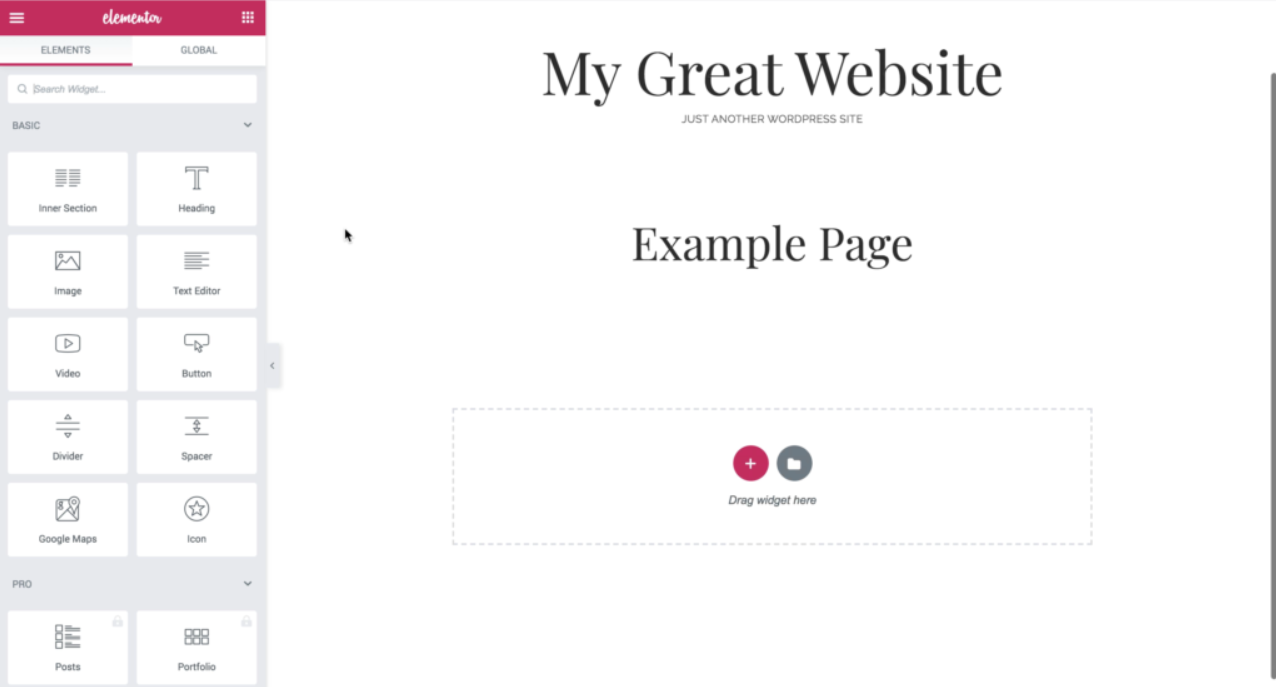
Showit’s editor, scoring 8.0, is designed for creating custom, responsive websites with a focus on ease of use, especially for photographers and creative professionals. It allows users to design their website visually with a drag-and-drop interface, eliminating the need for coding knowledge. Users can create highly customized pages by adjusting layouts, fonts, and colors, and can also incorporate multimedia elements like videos and images directly into their designs.
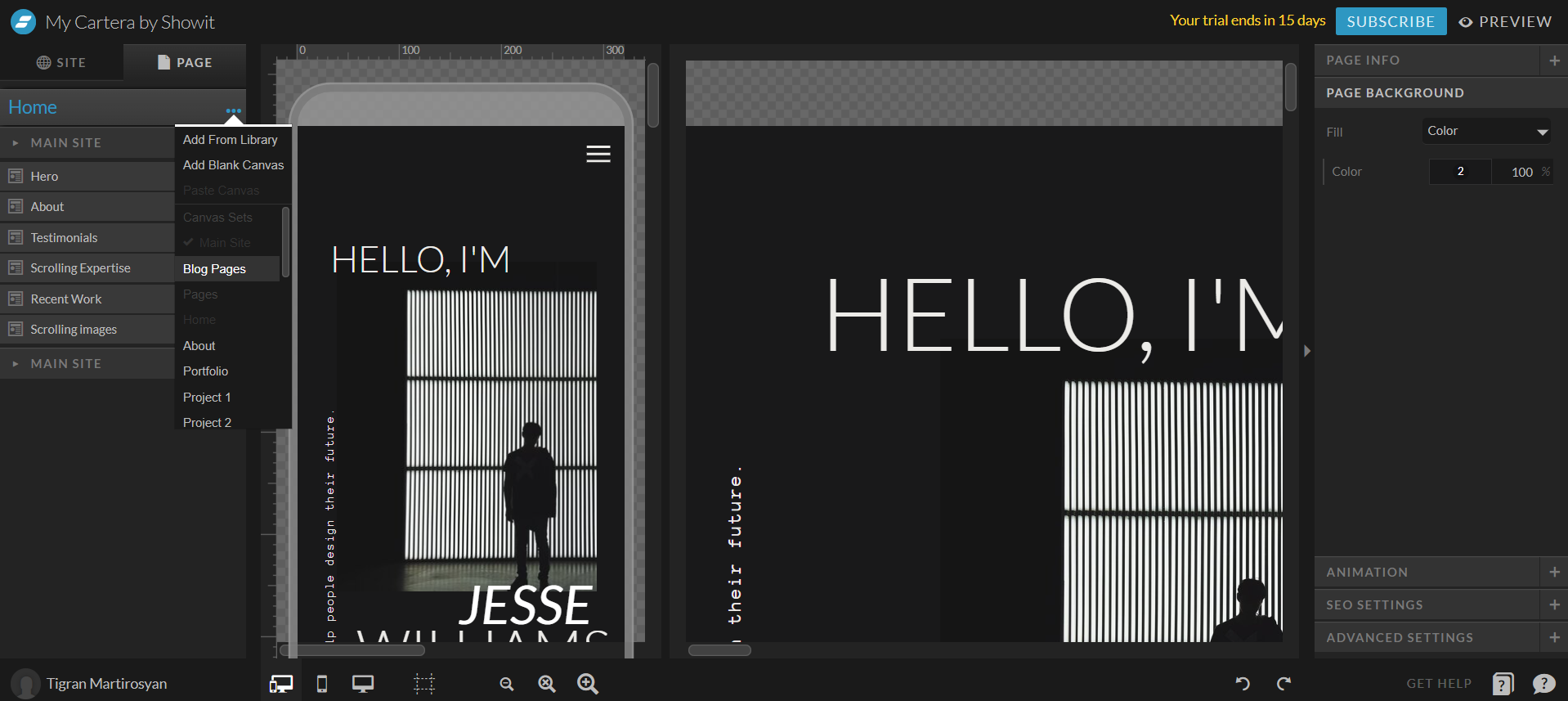
Mobile editor/app
 0
0
 0
0
🏆
No Winner
. Unfortunately, neither Elementor nor Showit offer a dedicated mobile editor or app for editing websites. This means that users will not be able to make changes to their websites using a mobile device. This could be a significant drawback for users who prefer to work on-the-go or do not always have access to a desktop computer.
Therefore, if mobile editing is a crucial feature for you, you might want to consider other website builders that offer this capability.
Product testing options
Product Testing OptionsAssesses the options for trying out platform features before commitment.Score Components:
- Trial quality (40%): Extent and usefulness of the trial or free version.
- Feature accessibility (30%): How many features are available to test.
- Trial duration (20%): Length of the trial period.
- Ease of transition (10%): Smoothness of moving from trial to paid plans.
 5.6
5.6
 8.3
8.3
Overall Result
:
Showit Wins
. Showit scores 8.3, outperforming Elementor which scores 5.6. Showit offers a 14-day free trial, allowing users to test all premium features. Elementor, on the other hand, offers a free version but only for self-hosted WordPress.org. Both platforms offer a 30-day money back guarantee.

|

|
|
|---|---|---|
|
Free Plan |
Yes, but only for self-hosted WordPress.org | No |
|
Trial Duration |
No | 14 days |
|
Testing Premium Features |
It is possible to test all the premium features during the refundable period | It is possible to test all the premium features during the 14-day trial |
|
Money Back Guarantee |
30-day money back guarantee | 30-day money back guarantee |
Price
PriceLooks at the cost-effectiveness and value for money of each platform.Score Components:
- Plan value (40%): What each pricing tier offers.
- Transparency and clarity (30%): Clearness of pricing structures.
- Flexibility of plans (20%): Range of options to suit different budgets.
- Hidden costs (10%): Additional expenses not included in the plan.
 8.0
8.0
 7.9
7.9
Elementor and Showit have similar price scores, indicating that they both offer good value for money.
Elementor’s plans are billed annually, while Showit offers a discount for annual subscriptions. Elementor does not have enterprise level support, while Showit offers a custom plan for high-traffic blogs exceeding 100k visits per month.

|

|
|
|---|---|---|
|
$0-$10 |
Basic ($9.99/month): 1 website, with 10GB SSD storage, 25k monthly visitors, 30GB monthly bandwidth, daily auto backups stored for 14 days, Cloudflare CDN, and integrated caching tool. Value for price: 6.5 |
No offering at this amount. |
|
$10-$20 |
Business ($19.99/month): 1 website, with 20GB SSD storage, 50k monthly visitors, 50GB monthly bandwidth, daily auto backups stored for 30 days, Cloudflare CDN, integrated caching tool and access to staging environment. Value for price: 7.5 |
No offering at this amount. |
|
$20-$25 |
Grow ($22.99/month): 3 websites, with 30GB SSD storage, 75k monthly visitors, 75GB monthly bandwidth, daily auto backups stored for 30 days, Cloudflare CDN, integrated caching tool, access to staging environment and site cloning. Value for price: 8.5 |
Showit ($24/month): Ideal for sites without a blog. Includes 20GB storage and secure certificate. Regular design backups stored for 7 days. Value for price: 6.0 |
|
$25-$30 |
No offering at this amount. |
Showit + Basic Starter Blog ($29/month): For new blogs. Includes everything in the Showit plan, plus blog-specific features. 20GB storage, up to 10k monthly visitors, daily backups stored for 30 days, pre-installed plugins (no additional plugins are permitted), 1 WordPress user. Value for price: 7.0 |
|
$30-$50 |
Scale ($49.99/month): 10 websites, with 40GB SSD storage, 100k monthly visitors, 100GB monthly bandwidth, daily auto backups stored for 30 days, Cloudflare CDN, integrated caching tool, access to staging environment and site cloning. Value for price: 9.0 |
Showit + Advanced Blog ($39/month): For migrating or high-traffic blogs with custom plugin needs. Includes everything in the Basic Starter Blog plan, plus up to 25k monthly visits, unlimited number of plugins, unlimited number of WordPress users, Free advanced blog migration from WordPress or Squarespace and FTP access. Value for price: 8.0 |
|
$60-$70 |
No offering at this amount. |
Showit + Advanced Blog 50k ($69/month): Includes everything in the Showit + Advanced Blog plan, with possibility to install custom WordPress plugins, 30 GB storage, up to 50k visitors monthly, and possibility to migrate Squarespace and WordPress blog posts. Value for price: 8.5 |
|
$100+ |
No offering at this amount. |
Showit + Advanced Blog 100k ($129/month): Includes everything in the Showit + Advanced Blog plan, with possibility to install custom WordPress plugins, 50 GB storage, up to 100k visitors monthly, and possibility to migrate Squarespace and WordPress blog posts. Value for Price: 9.0 |
location. As a result in rare cases the prices displayed here can differ from the ones you see on their
websites.
Hosting quality
Hosting
qualityExamines the reliability and performance of the hosting solutions.Score Components:
- Uptime (40%): Consistency and reliability of website availability.
- Speed (30%): Loading times and performance.
- Bandwidth and storage (20%): Sufficiency of resources provided.
- Data centers (10%): Quality and distribution of hosting infrastructure.
 7.8
7.8
 7.3
7.3
🏆
Winner: Elementor
Both Elementor and Showit offer managed WordPress hosting with a 99.9% uptime guarantee. However, Elementor edges out Showit with its Google Cloud powered hosting and more transparent information about its data center. Showit does not disclose any information about its data centers, which could be a concern for some users.

|

|
|
|---|---|---|
|
Do they offer hosting? |
Yes, included in all their plans, Google Cloud powered hosting, with 10-40GB SSD storage, and daily auto backups stored from 14 to 30 days depending on the plan |
Yes, Managed wordpress hosting, with daily backups and 20GB storage. |
|
Data Centers: |
1 data center in Belgium |
Showit does not disclose any information about its data centers. |
|
Type of hosting: |
Managed WordPress Hosting |
Managed WordPress hosting |
|
Uptime: |
99.9% |
99.9% |
|
Uptime Guarantee: |
Yes, 99.9% |
Yes, 99% |
Website Speed Optimization
Website Speed OptimizationEvaluates optimization of website loading timesScore Components:
- PageSpeed Score (30%): Google’s score indicating performance optimization.
- Loading Time (30%): The average time until a website is fully interactive.
- Mobile Optimization (15%): Optimization effectiveness for mobile devices.
- Resource Optimization (15%): Optimizing images, scripts, and other heavy resources.
- CDN Usage (10%): Use of CDN to enhance speed across geolocations.
 6.7
6.7
 5.4
5.4
🏆 Winner: Elementor
Both Elementor and Showit prioritize website performance and page speed, but Elementor has a higher website speed optimization score and uses more strategies for speed optimization.

|

|
|
|---|---|---|
|
Focus |
Website performance and page speed |
Website performance and page speed |
|
Performance Tools |
Not specified |
Not specified |
|
Key Strategies |
Lazy Loading, Code Minification, Caching, CDN |
Optimization plugins, Caching |
|
Load Times |
Varies depending on optimization and website complexity |
Varies depending on optimization and website complexity |
|
Page Speed Scores Range |
Not specified |
Not specified |
|
Core Web Vitals Improvement |
Not disclosed |
Not disclosed |
Elementor, a popular website builder plugin for WordPress, prioritizes website performance and page speed. It uses strategies like Lazy Loading, Code Minification, Caching, and CDN for speed optimization. However, Elementor does not disclose any information about its Core Web Vitals improvements. The load times and PageSpeed scores for Elementor vary depending on optimization and website complexity.
Showit, a drag-and-drop website builder designed primarily for creative professionals, also prioritizes website performance and page speed. It uses optimization plugins and caching for speed optimization. Like Elementor, Showit does not disclose any information about their Core Web Vitals improvements. The load times and PageSpeed scores for Showit also vary depending on optimization and website complexity.
Get a head start on website creation with AI
Create a custom website tailored to your business needs 10X faster with 10Web AI Website Builder!
Plugins and integrations
Plugins and integrationsMeasures the range and effectiveness of additional plugins and integrations.Score Components:
- Variety of options (40%): Range of available add-ons.
- Integration smoothness (30%): Ease of integrating plugins into the site.
- Quality of plugins (20%): Functionality and reliability of the options.
- Custom integration capabilities (10%): Support for custom or third-party integrations.
 7.6
7.6
 5.8
5.8
🏆 Winner: Elementor.
With a score of 7.6, Elementor leads the way with its wide range of add-ons that extend the functionality of the base version, offering advanced widgets, modules, and complete theme building capabilities for deep customization. Showit, scoring 5.8, also offers a variety of plugins, but Elementor’s extensive options and superior integration capabilities give it the upper hand.
Elementor add-ons are available in a wide range, offering both free and premium options to enhance website building with Elementor. Premium add-ons like Elementor Pro, Crocoblock, and PowerPack provide advanced features such as theme building, dynamic content, and extensive widget libraries, with prices starting from around $33/year. Free options also offer significant enhancements, making them suitable for users needing basic improvements without the cost.
Showit offers a variety of plugins primarily for users with the Advanced Blog plan, enhancing website functionality across SEO, spam protection, and more. However, the availability and use of these plugins are contingent upon the subscription tier, with higher tiers required for broader plugin compatibility and additional features.
Elementor integrates with a broad range of tools, enhancing its functionality for marketing, CRM, and social media needs. Key integrations include email marketing platforms like MailChimp, AWeber, and ActiveCampaign, WordPress plugins such as WooCommerce and Yoast for SEO, and social networks like Facebook SDK and YouTube.
Showit integrates with a variety of platforms to enhance your website’s functionality, and one notable integration is with Powr.io. Powr.io offers a range of widgets that can be embedded into your Showit site, helping to improve business management and customer experience. This platform provides options from free to paid plans, allowing for customization according to your needs.
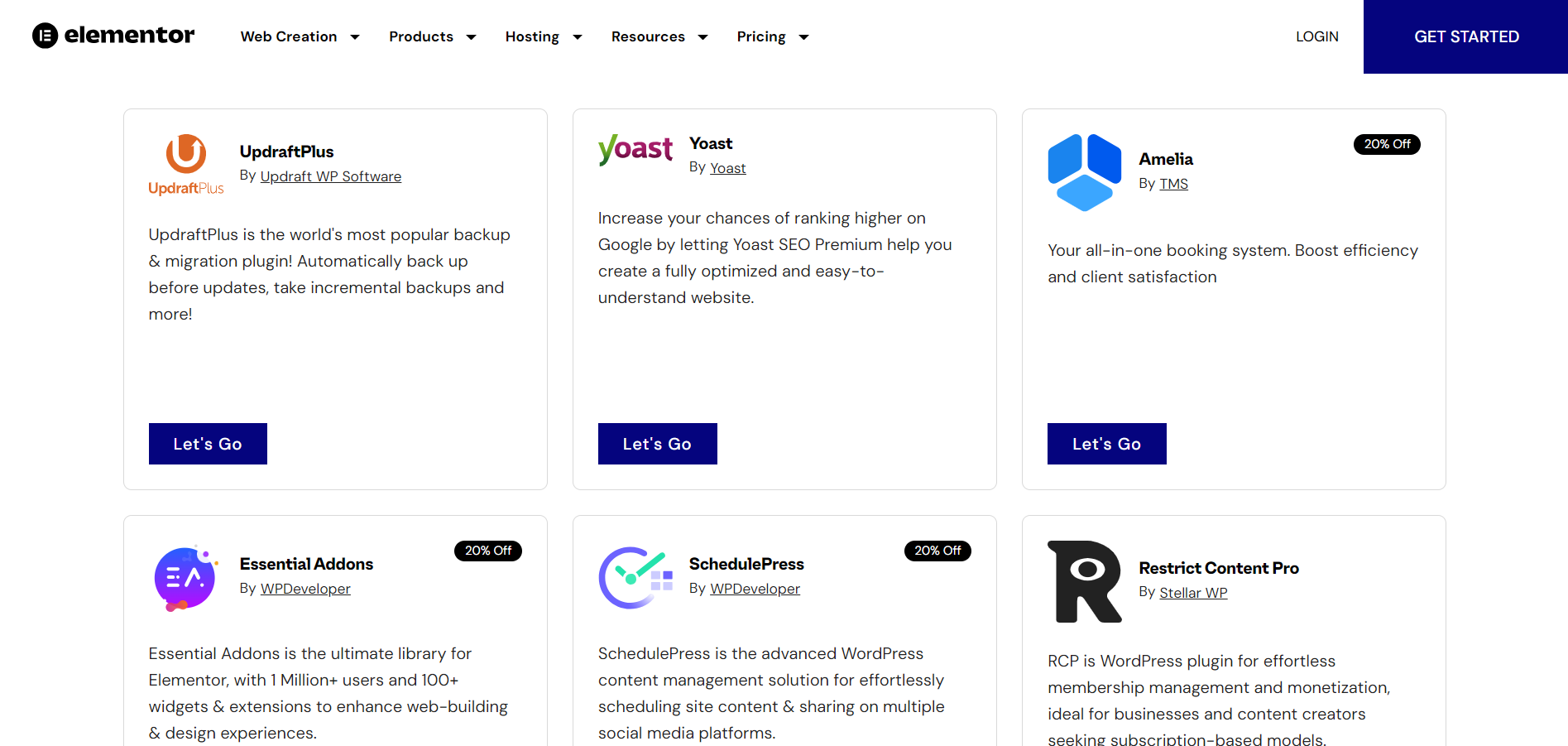
Marketing Features
Design FunctionalitiesRepresents how well each platform allows for creative design and customization of websites.Score Components:
- Template Variety (30%): Range and quality of design templates.
- Customization (30%): Flexibility and options for design alterations.
- User Interface (20%): Ease and intuitiveness of the design process.
- Responsiveness (10%): Adaptability to different devices and screen sizes.
- Innovation (10%): Unique design features and tools.
 7.8
7.8
 7.2
7.2
🏆
Overall Winner: Elementor
. Elementor stands out for its flexibility and compatibility with various WordPress plugins, enhancing its functionality and versatility. Showit is strong in its unique feature of a dual canvas interface and its seamless integration with WordPress for blogging.

|

|
|
|---|---|---|
|
SEO Tools |
✓ (with integration of various SEO plugins) |
✓ |
|
Email Marketing |
✓ (with integration of various email marketing services and plugins) |
✓ (through third-party integrations) |
|
Blogging |
✓ |
✓ |
|
Social Media Integration |
✓ (integration of social media buttons) |
✓ |
|
Analytics and Reporting |
✓ (with integration of Google Analytics) |
✓ (through integration of Google Analytics) |
|
Ads and Promotions |
✓ |
✓ (through third-party integrations) |
Customer Support
Customer supportEvaluates the quality and availability of support options.Score Components:
- Response time (40%): Speed of support responses.
- Support quality (30%): Effectiveness and helpfulness of the support.
- Availability (20%): Range of support channels (phone, chat, email).
- Resource richness (10%): Quality of self-help and educational materials.
 7.2
7.2
 6.4
6.4
🏆 Winner: Elementor
. Comparing Elementor vs Showit, Elementor takes the lead in this category with its 24/7 customer support availability. Elementor provides support through ticketing and live chat, ensuring users can get help at any time, which is a significant advantage for users who may need assistance outside of regular business hours.
Showit, on the other hand, offers customer support via email and chat from Monday to Friday, 7 AM to 11 PM Arizona Time, with limited support on weekends. While Showit is praised for its quick response times during business hours, its lack of 24/7 support can be a drawback for users who need immediate assistance outside of these hours. Despite this, Showit’s support team is known for being responsive and helpful within their available hours.
Security
SecurityLooks at the platforms’ security measures and data protection.Score Components:
- Data protection (40%): Safeguards for user and customer data.
- SSL and encryption (30%): Implementation of secure connections.
- Compliance (20%): Adherence to industry security standards.
- Regular updates (10%): Frequency of security updates and patches.
 9.1
9.1
 8.3
8.3
🏆
Winner: Elementor
. Elementor’s security measures are robust and comprehensive, leveraging Google Cloud’s infrastructure for high security, including end-to-end encryption. They also employ both active and passive security measures, including 24/7 monitoring, regular updates, backups, and specialized security protocols to protect against common threats. Elementor’s commitment to security is further emphasized by its ISO 27001 certification and a proactive Bug Bounty program.
Showit also prioritizes user data privacy and security, adhering to GDPR guidelines and employing Amazon’s S3 for secure and redundant data storage. They provide robust security features for all hosted websites, including free SSL certificates for secure HTTPS connections and automated backups. However, Elementor’s security measures are more comprehensive, earning it a higher security score.
AI Capabilities
AI capabilitiesMeasures the effectiveness of AI-driven features and tools.Score Components:
- Automation efficiency (40%): Impact of AI on streamlining processes.
- Personalization (30%): AI-driven customization for users or customers.
- AI-Assisted design (20%): Role of AI in website design and functionality.
- Data analysis (10%): Use of AI in interpreting user data and analytics.
 7.4
7.4
 0
0

|

|
|
|---|---|---|
|
AI Builder |
Elementor AI builder offers text, custom codes, and image generation |
|
|
AI Ecommerce features |
AI-driven features for eCommerce websites |
|
|
AI content generation |
AI content generation capabilities |
|
|
Additional AI features |
Integration with third-party AI powered WordPress plugins or widgets |
|
🏆 Winner: Elementor
. Elementor, with a score of 7.4, clearly outperforms Showit in terms of AI capabilities. Elementor’s AI builder offers a range of features that enhance the website creation process, making it more efficient and creative. On the other hand, Showit does not offer any AI capabilities.
User Management
User ManagementAssesses the platforms’ capabilities in managing user roles, permissions, and accessibility.Score Components:
- Role Customization (40%): Flexibility in creating and defining user roles and
permissions. - Ease of Management (30%): User interface and tools for managing users.
- Access Control (20%): Effectiveness of access control measures for different user
levels. - Scalability (10%): Ability to manage a growing number of users efficiently.
 8.8
8.8
 6.7
6.7
🏆 Winner: Elementor
. Elementor and Showit offer different approaches to user management.
- Elementor operates on WordPress, and the number of users who can edit or manage a website depends on the roles and permissions set within WordPress. Administrators have full access to edit any part of the site, including Elementor settings, while Editors can manage posts and pages made with Elementor. Authors and Contributors have limited capabilities. Elementor Pro offers a Role Manager feature, enabling further customization of what different roles can do within Elementor.
- Showit allows only one user on lower plans. However, on its Showit + Advanced Blog plan, the platform allows an unlimited number of users with different access levels.
Elementor User Roles and Access Levels:
| Role | Description | Access Highlights |
|---|---|---|
| Administrator | Users with full access to all administration features, including Elementor settings. | Can edit all content, Access to Elementor settings, Can install plugins and themes, Can manage users |
| Editor | Users who can manage and publish content including pages and posts. | Can edit pages/posts created with Elementor, Cannot access Elementor settings, Can manage categories, tags, and links, Can moderate comments |
| Author | Users who can publish and manage their own posts. | Can create posts with Elementor, Cannot edit pages, Limited access to media library, Cannot access Elementor settings |
| Contributor | Users who can write and manage their own posts but cannot publish them. | Can create content with Elementor, Cannot publish or edit pages, No access to Elementor settings, Submissions require review by higher-level roles |
Showit User Roles and Access Levels:
| Role | Description | Access Highlights |
|---|---|---|
| Administrator | Users with full access to all administration features, including Elementor settings. | Can edit all content, Access to Elementor settings, Can install plugins and themes, Can manage users |
| Editor | Users who can manage and publish content including pages and posts. | Can edit pages/posts created with Elementor, Cannot access Elementor settings, Can manage categories, tags, and links, Can moderate comments |
| Author | Users who can publish and manage their own posts. | Can create posts with Elementor, Cannot edit pages, Limited access to media library, Cannot access Elementor settings |
| Contributor | Users who can write and manage their own posts but cannot publish them. | Can create content with Elementor, Cannot publish or edit pages, No access to Elementor settings, Submissions require review by higher-level roles |
Additional Features

|

|
|
|---|---|---|
|
SSL Certificate |
|
|
|
Custom Domain |
|
|
|
Free Custom Domain Included |
|
|
|
International Domains |
|
|
|
Mobile Responsive |
|
|
|
Page Speed |
|
|
|
Website Builder Mobile App |
|
|
|
Convert a Website To An App |
|
|
|
Website Analytics |
|
|
|
Multilingual Sites |
|
|
|
Multiple Users |
|
|
User Feedback
Elementor is widely appreciated for its intuitive drag-and-drop interface, enabling rapid creation of professional and responsive websites without coding skills. It offers a vast range of templates and compatibility with WordPress, making it a go-to for diverse users. Despite its benefits, concerns arise regarding website loading times, subscription costs, and occasional compatibility issues. Feedback on customer support and legacy plan management is mixed, with some users experiencing dissatisfaction. Overall, Elementor is valued for its efficiency in web development, although some aspects, particularly support services, could be improved.
Showit, designed primarily for creative professionals such as photographers, designers, and bloggers, offers a unique dual canvas interface for independent mobile and desktop design. While detailed user feedback is not available, its integration with WordPress for blogging and high degree of customization make it a popular choice among its target audience. The platform’s focus on creative freedom and design flexibility is a significant draw for users in the creative industry when comparing Elementor vs Showit.
The making of this blog
We followed a clear, step-by-step process to write and research this article.
FAQ
Which platform is better for creative professionals, Elementor or Showit?
Can I use Elementor and Showit for ecommerce websites?
How do Elementor and Showit compare in terms of ease of use?
What are the main differences in pricing between Elementor and Showit?
Which platform offers better customer support, Elementor or Showit?
Are Elementor and Showit suitable for beginners?










